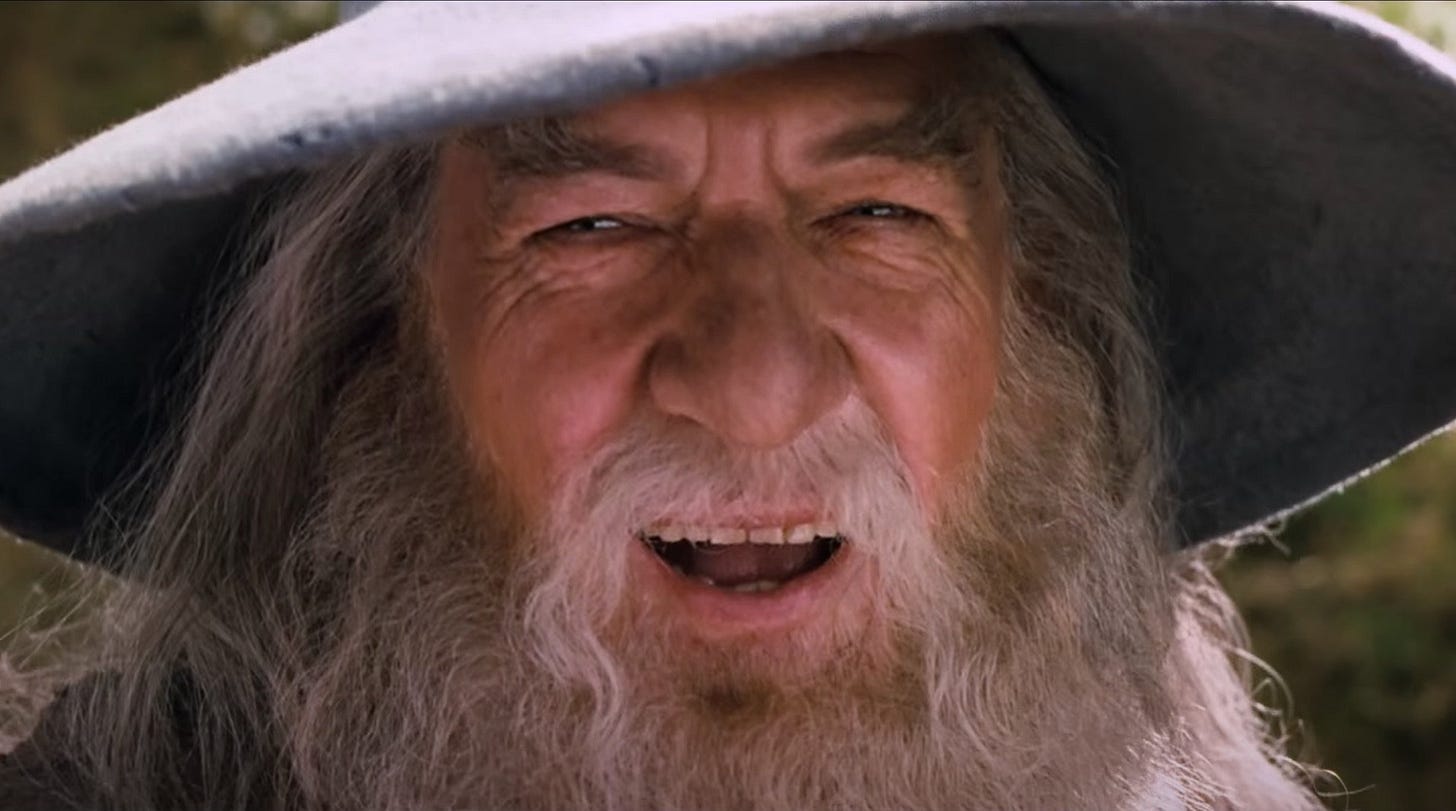Neil here! Reminder: in this email list to my friends, there's a mathematician, a retired congressman of the United States, software engineers, a dozen Sciences Po students, the owner of a legendary Silicon Valley restaurant, a lawyer, a tech billionaire, archeology professors, and miriad shapeless entities of awesome potential who will no doubt exceed the accomplishments of everyone else on the list (read: high school students). Thanks for reading this. I hope I can be of some use to you.
I respond to all replies, and encourage you to reply. Si vous parlez français, utilisez Google Translate je vous prie!
I.
This week I:
Got into the finalist cohort of Non-Trivial, an online program which gives you $500-$15,000 if you convince them your project will do good in the world
They threw me into a Discord server with 300 other finalists; some of the coolest, smartest people I’ve met
I suspect something like 70% of the total utility of the program is in meeting those people
Learned how to synchronize in-real-time 36 Google Documents to a Google Form
I did this to distribute the compliments people in my class gave each other in this form: tinyurl.com/oib-class-is-wholesome
I don’t program often, but I can tell you this: there’s nothing more gratifying than spending over 5 hours fixing bug after bug before having the program WORK!!
In Dungeons and Dragons, I managed to duplicate my consciousness into 500,000 little dragons. That means there are half a million Neils in our D&D world, perpetuating Neil values and doing Neil things.
It’s just as cool and wonderful as it sounds
Procrastinated on writing the newsletter
There's a lot more news on my end, but writing this took so long I'll leave it for the next issue
II.
Is it okay to trade happiness for something else?
1. If you have an important exam coming up in a week, aren’t you justified in feeling anxious and stressed about it? If foregoing video games and time with friends allows you to study, shouldn’t you do it? The exam is important after all!
2. If working hard yields better results, and those results involve distributing bednets in subsaharan Africa, doesn’t it make sense from a utilitarian perspective to forgo your own happiness? Whatever happiness you lose looks tiny when compared to the total life happiness available to a kid who doesn’t die of malaria. Right?
3. What if you find out about something dangerous? An extremely real risk which involves incalculable moral damage—something people don’t like thinking about, but that will definitely wreak havoc if nobody thinks about it? Shouldn’t you think about it all the time, even if it puts you down?
III.
That last example is the position AI alignment researchers find themselves in. As a modified LOTR quote goes, when Frodo is told about Sauron's shenanigans:
“I wish it need not have happened in my time,” said Frodo.
“lmao" said Gandalf, “well it has.”
That's how it feels from the inside! Some deep apprehension and a sort of vague resentment at being born in the 21rst century where people still die of horrible things like heart attacks, cancer, and old age(""). There are so many fires to douse and we were born in the flames.
But Gandalf (as usual) is right. The correct reaction is "lmao".
IV.
Forgoing happiness isn't instrumentally useful. There's no point in assimilating pain to effort, as many do. As the author of this short and excellent post writes:
I see a mob of people walking up to houses and throwing themselves bodily at the closed front doors. I walk up to block one man and ask, "Stop it! Why don't you try the doorknob first? Have you rung the doorbell?" The man responds in tears, nursing his bloody right shoulder, "I'm trying as hard as I can!" With his one good arm, he shoves me aside and takes a running start to lunge at the door again. Finally, the timber shatters and the man breaks through. The surrounding mob cheers him on, "Look how hard he's trying!"
Once you understand that pain is how people define effort, the answer to the question "why is nobody actually trying?" becomes astoundingly obvious.
The cool thing about the world is that often the best solution involves doing things cheerfully🥳. This is not the same as not taking things seriously: you can fight to save lives in subsaharan Africa your whole life, or reduce the chance of human extinction, while also doing it cheerfully🥳. In fact, being dreary is counterproductive because it makes you less effective, motivated, creative, etc. Therefore, doing things cheerfully🥳 is more serious than being dreary.
(So if you were a serious person, you wouldn't laugh at e.g. gratitude journals, which are thoroughly proven to make anything you care about better. See the
"try more" email I sent you last time.)
There's also a measure in which saying "lmao" is much wiser on a deep level: accepting things in stride, not stressing about things outside your control, finding the cosmic irony in whatever you're doing (there always is one). The world is dark but that's no reason not to laugh at it; dark humor exists for a reason.
V.
Email me! I'll give you a cookie in exchange :)
This was the 8th neilsletter I think. To unsubscribe, you'll have to defeat my black-belted beaver-bison hybrid in single combat (which is exactly as hard as it seems) OR mark my emails as spam. You can do that too.





Amzing post. I recommended it to friends. That saved me a lot of explaining, so thanks for writing this Neil!